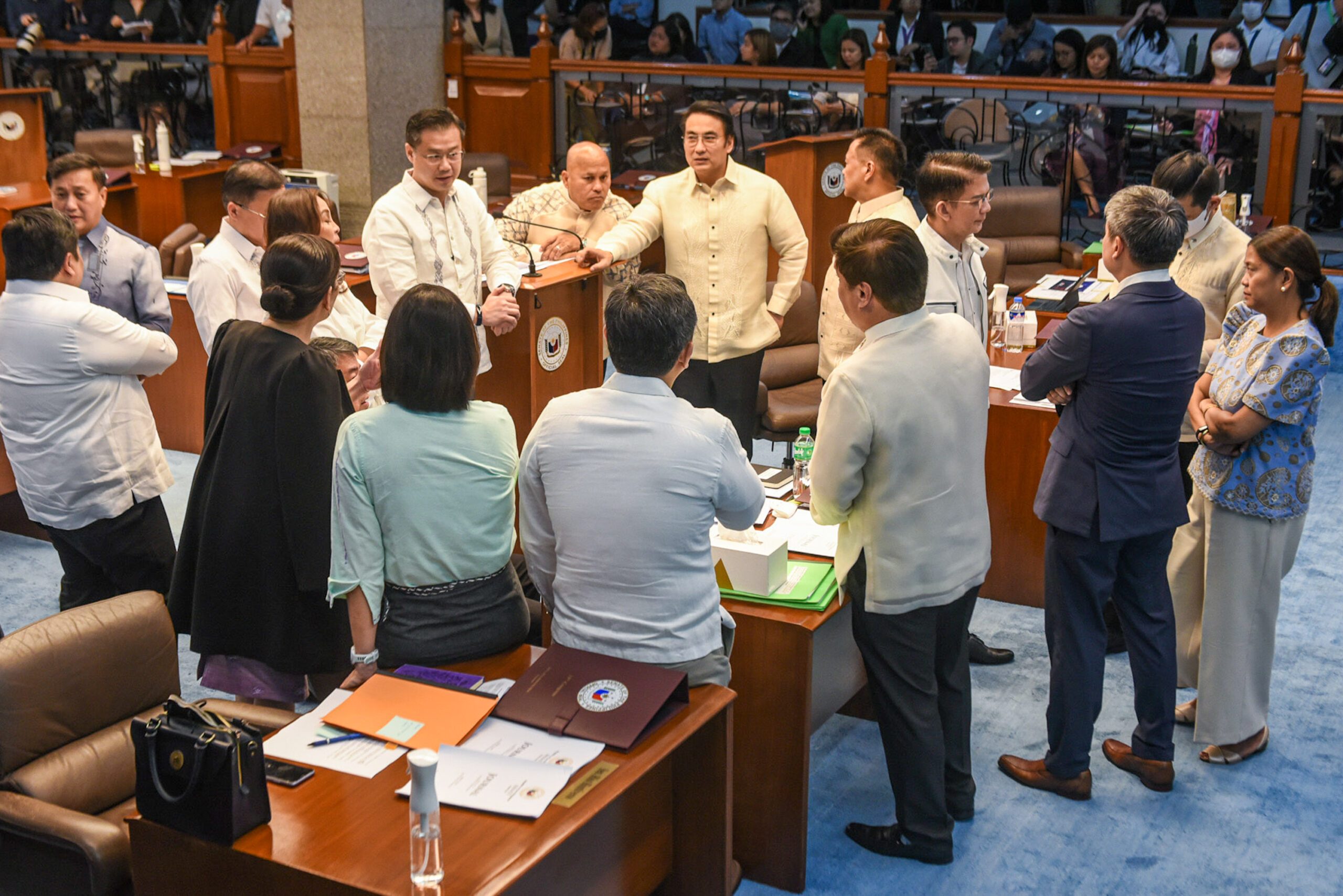What Privileges Do Senators Have? Exploring Their Special Benefits And Responsibilities
Have you ever wondered about the special arrangements and benefits that come with being a United States Senator? It's a question many people ponder, especially when thinking about how our government works. There's a certain fascination, almost an eerie quality, to the idea of elected officials enjoying privileges that seem quite distinct from what most citizens experience. This curiosity is perfectly natural, as it touches upon ideas of fairness, accountability, and the very structure of public service.
Understanding what privileges senators have isn't just about satisfying curiosity; it really helps us grasp the scope of their work and the resources they command. These special considerations are not just random perks; they are, in some respects, designed to help them do their very important jobs. Yet, the discussion around them often sparks lively debates about transparency and public trust.
Today, we're going to take a closer look at these aspects. We'll explore the various benefits and protections that come with holding a Senate seat, shedding some light on what these entitlements mean for both the senators themselves and the people they represent. It's a topic that, you know, tends to spark a lot of discussion, and for good reason.
Table of Contents
- Constitutional Protections and Immunities
- Compensation and Benefits
- Perks and Conveniences
- Public Perception and Accountability
- Frequently Asked Questions
- Conclusion
Constitutional Protections and Immunities
Senators, as members of Congress, are afforded certain protections by the United States Constitution itself. These aren't just minor perks; they are actually fundamental to how the legislative branch operates. The idea behind these protections is to allow senators to perform their duties without undue influence or harassment from other branches of government or, you know, outside forces. They are, in a way, safeguards for the legislative process.
The Speech or Debate Clause
One of the most significant protections senators have is found in Article I, Section 6, Clause 1 of the Constitution. This is often called the Speech or Debate Clause. What it basically means is that senators, for any speech or debate in either House, shall not be questioned in any other place. This protection is quite broad, covering things said or done in the course of legislative business. It's designed to ensure that senators can speak freely on the Senate floor or in committee meetings without fear of being sued for defamation or facing other legal repercussions for their official statements.
This clause, in a way, really allows for robust debate and deliberation, which is pretty important for making laws. Without it, a senator might hesitate to express a controversial opinion or expose wrongdoing, fearing personal legal attacks. So, it's not just about protecting the individual senator; it's about protecting the integrity of the legislative process itself. The protection does not, however, extend to actions or statements made outside of their official legislative duties, which is a key distinction.
For example, if a senator gives a speech on the Senate floor, they are shielded from libel lawsuits for what they say there. But, if they repeat those same statements in a press conference outside the Capitol, that protection might not apply. This distinction, you know, is pretty important for how accountability works. It’s a delicate balance, allowing for freedom of expression in official duties while still maintaining some level of responsibility for public statements.
Privilege from Arrest
Another constitutional privilege, also found in Article I, Section 6, Clause 1, is the privilege from arrest. This means that senators, except for treason, felony, and breach of the peace, are privileged from arrest during their attendance at the session of their respective House, and in going to and returning from the same. This protection, while seemingly quite grand, is actually pretty limited in its modern application.
Historically, this privilege was meant to prevent the executive branch or political opponents from disrupting legislative sessions by arresting members for minor offenses. It ensured that lawmakers could travel to and from Congress and attend sessions without being detained for, say, a civil debt or a small infraction. So, it was more about ensuring attendance than granting immunity from serious crimes. It's a concept that has, you know, endured longer than some might expect.
Today, this privilege does not protect senators from arrest for serious criminal offenses. If a senator commits a felony, for instance, they can absolutely be arrested. The "breach of the peace" exception has been interpreted very broadly by courts to include all criminal offenses. So, while it sounds like a sweeping immunity, its practical effect now is mostly to prevent arrests for minor civil matters or petty offenses that might impede their ability to perform their legislative duties. It's, you know, a bit of a historical artifact in some ways.
Compensation and Benefits
Beyond constitutional protections, senators also receive a comprehensive package of compensation and benefits. These are designed to provide a living wage and support the demanding nature of their roles. The idea is that they should be able to focus on their legislative work without having to worry constantly about financial matters, which, you know, makes sense for such an important job.
Salary and Allowances
Senators receive an annual salary, which is set by law. As of 2024, the majority of senators earn a specific amount, though leadership positions might receive a slightly higher sum. This salary is, of course, subject to federal income tax, just like anyone else's income. The amount is meant to be sufficient to live comfortably in Washington D.C. and maintain a residence in their home state, which, you know, can be pretty expensive.
In addition to their base salary, senators also receive various allowances to cover the costs associated with running their offices and performing their duties. These allowances include funds for staff salaries, official office expenses, and, you know, communication costs. These funds are not personal income but are meant to support their work, allowing them to hire staff to handle constituent services, research legislation, and manage their schedules. It's a significant budget, designed to support a complex operation.
These allowances are subject to strict rules and oversight, though, naturally, questions about how they are used do come up from time to time. The funds are there to ensure that senators have the necessary support to represent their constituents effectively. Without these resources, it would be, you know, incredibly difficult for a single person to manage the workload of a modern senator.
Healthcare and Retirement Plans
Senators, like other federal employees, have access to various healthcare and retirement plans. They can participate in the Federal Employees Health Benefits Program (FEHBP), which offers a range of health insurance options. This is, you know, a pretty standard benefit for many workers, but for senators, it’s part of a comprehensive package that helps ensure their well-being.
For retirement, senators are typically enrolled in the Federal Employees Retirement System (FERS). This system includes a basic benefit plan, Social Security, and a Thrift Savings Plan (TSP), which is similar to a 401(k). The retirement benefits are based on years of service and average salary, just like for other federal employees. The idea is to provide a secure retirement after a career in public service, which, you know, can be pretty demanding.
These benefits are not unique to senators; they are part of the broader federal employee benefits structure. However, the fact that they are part of the package for senators ensures that they have comprehensive coverage and a secure financial future, which, you know, is important for attracting talented individuals to public office. It’s a way to ensure that people can commit to public service without sacrificing their long-term financial stability.
Travel and Office Funds
Senators also receive funds to cover their official travel expenses. This includes trips between Washington D.C. and their home states, as well as travel for committee hearings, official meetings, and, you know, constituent events. Given that senators represent entire states, often very large ones, extensive travel is a fundamental part of their job. These funds are essential for them to stay connected with their constituents and understand local issues.
They also receive funds to maintain offices both in Washington D.C. and in their home states. A senator typically has a main office in the Capitol complex and several district offices scattered across their state. These offices serve as points of contact for constituents, places for staff to work, and, you know, bases for local outreach. The funding covers rent, utilities, equipment, and other operational costs for these spaces.
The allocation of these funds is overseen by Senate committees, and there are rules about how they can be spent. The goal is to ensure that senators have the physical infrastructure and logistical support needed to perform their duties effectively. It's, you know, a pretty significant investment in their operational capacity, allowing them to serve a wide range of people.
Perks and Conveniences
Beyond the more formal benefits, senators also enjoy certain perks and conveniences that, you know, make their demanding lives a little easier. These are often less about direct financial gain and more about practical advantages that come with their position.
Franking Privilege
The franking privilege allows senators to send official mail to their constituents without paying postage. Instead, their signature, or "frank," appears on the mail. This privilege is meant to facilitate communication between elected officials and the people they represent, allowing senators to share legislative updates, information about government services, and, you know, important news with their constituents.
However, this privilege has historically been a source of debate, especially around election times. There are rules in place to prevent its misuse for campaign purposes, but critics sometimes argue that it provides an unfair advantage to incumbents. The idea is that it should only be used for official business, not for political campaigning, which, you know, can be a tricky line to draw sometimes.
Despite the controversies, the franking privilege remains an important tool for constituent outreach. It allows senators to inform a large number of people about their work and, you know, how government programs might affect them. It’s a way to maintain a direct line of communication with the public they serve.
Access to Special Resources
Senators have access to an incredible array of resources that are not available to the general public. This includes dedicated research services from the Congressional Research Service (CRS), which provides non-partisan analysis and information on virtually any topic. They also have access to the Library of Congress, which is, you know, one of the largest libraries in the world, with vast collections and expert staff.
Beyond research, they also have privileged access to government agencies and officials. This means they can often get direct answers to questions, arrange meetings with agency heads, and, you know, gain insights that would be difficult for an ordinary citizen to obtain. This access is crucial for their oversight responsibilities and for understanding the implications of legislation.
These resources are vital for senators to perform their legislative and oversight duties effectively. They help them make informed decisions, understand complex issues, and, you know, represent their constituents' interests with a deep knowledge base. It's a significant advantage that helps them navigate the complexities of policy-making.
Security and Protocol
Given their prominent roles, senators are afforded certain security measures and adhere to specific protocols. This includes security details, especially for leadership positions or during times of heightened threat. The Capitol Police provide security within the Capitol complex, ensuring the safety of members of Congress, their staff, and, you know, visitors.
In terms of protocol, senators are often given special consideration at events, airports, and other public venues. This isn't necessarily a "privilege" in the sense of a benefit, but rather a recognition of their official status and the need to facilitate their movement and access, particularly when on official business. It's about ensuring they can do their job efficiently and safely.
This includes things like dedicated parking at the Capitol, access to special transportation services, and, you know, priority treatment at certain government facilities. These are practical arrangements designed to support their demanding schedules and ensure their safety. It's, you know, a pretty standard practice for high-ranking officials in many countries.
Public Perception and Accountability
The privileges senators enjoy are often a subject of public discussion and, sometimes, criticism. While many of these benefits are designed to help them perform their duties, there's a constant tension between necessary support and perceived special treatment. The public, you know, naturally wants to ensure that those in power are accountable and not abusing their positions.
Concerns often arise about the transparency of how funds are spent, the ethics of certain perks, and whether these privileges create a disconnect between elected officials and the everyday experiences of their constituents. This scrutiny is a vital part of a healthy democracy, ensuring that public servants remain, you know, truly accountable to the people they serve.
There are mechanisms in place for oversight, including ethics committees and public financial disclosure requirements. These measures aim to provide transparency and hold senators responsible for their conduct and the use of their allowances. The debate about these privileges is ongoing, reflecting the dynamic relationship between government and its citizens. It’s a conversation that, you know, tends to endure longer than many other political topics.
It's important for citizens to stay informed about these aspects of public service. Understanding the framework of privileges helps people form their own opinions on whether they are appropriate and whether the current system is serving the public interest effectively. This kind of awareness, you know, is pretty important for a vibrant civic life.
Frequently Asked Questions
Here are some common questions people ask about the privileges of senators:
Do senators get free healthcare for life?
No, senators do not get free healthcare for life. They are eligible to participate in the Federal Employees Health Benefits Program (FEHBP), which is the same program available to other federal employees. They pay premiums and deductibles, just like other participants. Their benefits continue into retirement based on their years of service and contributions, but it's not "free" healthcare.
Are senators exempt from all laws?
Absolutely not. Senators are subject to the same laws as all other citizens. The "privilege from arrest" mentioned earlier is very limited and does not protect them from arrest for serious criminal offenses like felonies or breaches of the peace, which courts interpret broadly to include all criminal acts. The Speech or Debate Clause protects their official legislative actions, but not illegal activities or statements made outside their duties.
Can senators use their office funds for personal expenses?
No, senators are strictly prohibited from using their official office funds or allowances for personal expenses. These funds are allocated specifically for the purpose of supporting their legislative duties, staff salaries, office operations, and official travel. Misuse of these funds can lead to ethics investigations, penalties, and, you know, even criminal charges. There are clear rules about what these funds can cover.
Conclusion
So, when we look at what privileges senators have, it becomes clear that these are a mix of constitutional protections, financial compensation, and practical conveniences. These elements are, in some respects, designed to enable them to perform their demanding duties effectively, representing millions of people and making significant decisions for the country. The Speech or Debate Clause, for instance, is there to ensure they can speak their minds freely on the Senate floor, which, you know, is pretty important for open debate.
From their salaries and health plans to their travel allowances and access to vast resources, these provisions aim to support a high level of public service. Yet, the discussion around these benefits will always be a lively one, reflecting public interest in transparency and accountability. It's a conversation that, you know, really helps keep our elected officials connected to the people they serve.
Understanding these aspects helps us better appreciate the role of a senator and the resources that go into maintaining the legislative branch. It encourages us to think about the balance between providing adequate support for public servants and ensuring they remain truly accountable to the people. You can learn more about government transparency on our site, and also find out about how laws are made. Your engagement in these topics, you know, is really what makes a difference.

Where do senators stand on divorce bill?

How Much Do Senators Make In Retirement? - Retire Gen Z

How Much Do Senators Make In Retirement? - Retire Gen Z